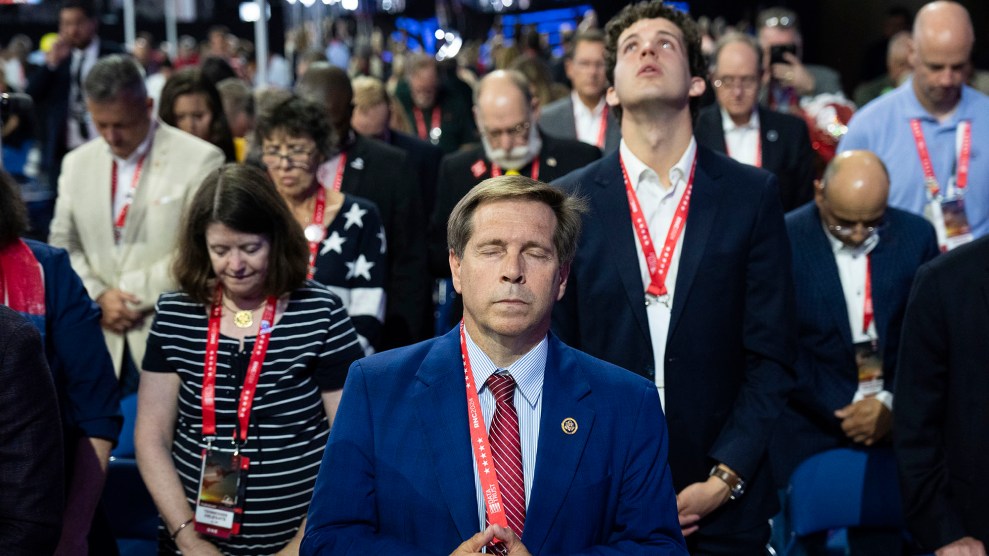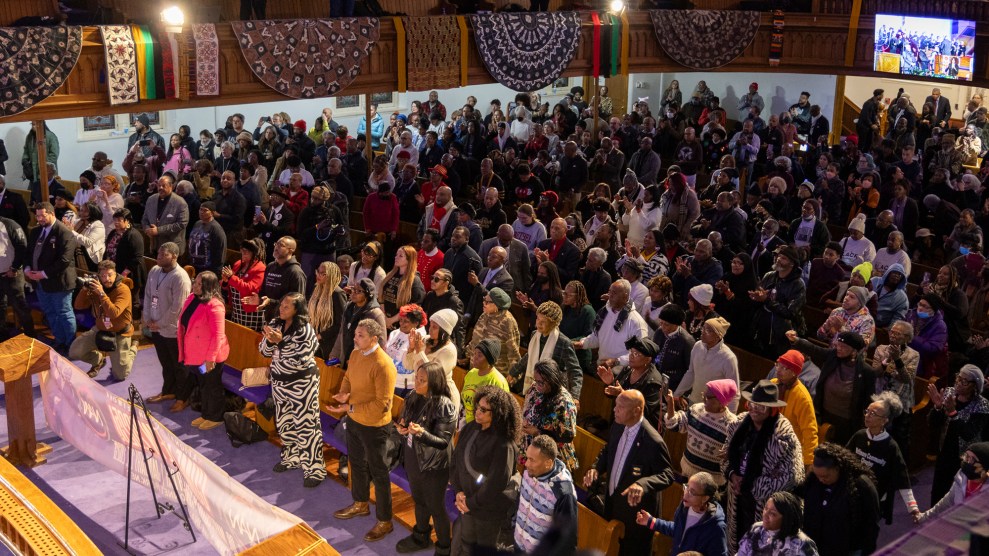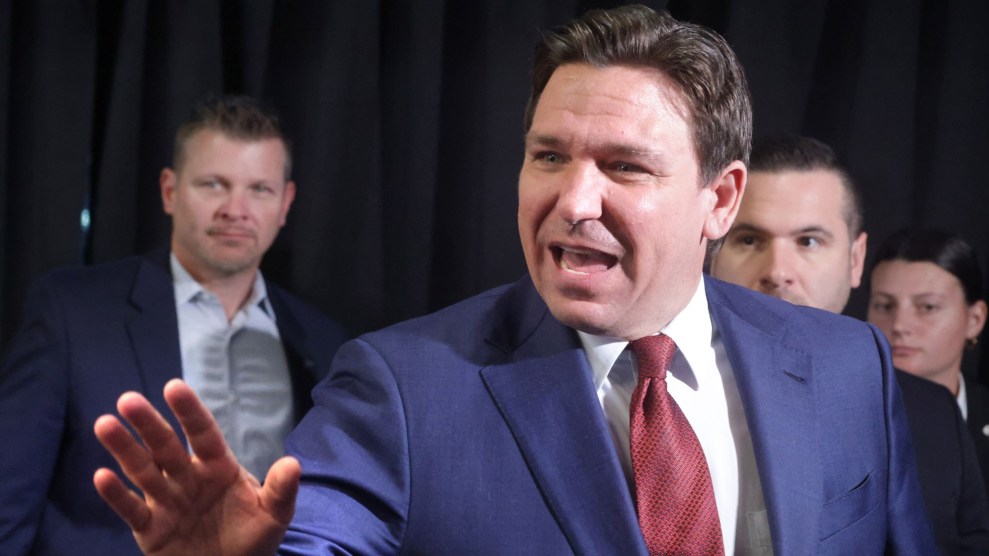
Rep. Chuck Fleischmann, (R-Tenn.), bows his head in prayer on the second day of Republican National Convention in Milwaukee.Tom Williams/CQ Roll Call/AP
On Monday night, Harmeet Dhillon, National Committeewoman of the Republican National Committee for California, offered a prayer to close Monday night’s Republican National Convention proceedings. The prayer, which Dhillon, who is Sikh, recited in Punjabi, seemed to have a universal message—the English translation of one line reads, “In your grace and through your benevolence, we experience peace and happiness.”
Yet despite this seemingly unobjectionable message, Dhillon’s prayer set off a firestorm in the far-right corners of Christian Twitter. After Dhillon’s prayer, Andrew Torba, CEO of the far-right social media platform Gab, ranted to his 400,000 followers on X, “Last night you saw why Christian Nationalism must be exclusively and explicitly Christian. No tolerance for pagan false gods and the synagogue of Satan.” Republican Oklahoma state Sen. Dusty Deevers seemed to agree. “Christians in the Republican party nodding silently along to a prayer to a demon god is shameful,” he posted. Lauren Witzke, the former producer of far-right livestreamer Stew Peters, added her voice to the chorus. “How about you get deported instead, you pagan blasphemer,” she posted to 159,000 followers. “God saves our president and the RNC mocks him with this witchcraft.”
I asked a handful of delegates what they thought about Dhillon’s prayer, and, given the ascendant Christian nationalist movement among Republicans, about their stances on the separation of church and state more broadly. Most of them told me that they believed that the United States should be a Christian country, but that they didn’t oppose the idea of people of other faiths practicing their religions.
Brenda King, an alternate delegate from Colorado, said she believed divine intervention saved former President Trump from the attempted assassination last Saturday. She “loved” the idea of posting the 10 Commandments in public school classrooms, though she also believed that “an absolute religion should have nothing to do with government.”
Christy Haik, a delegate from Louisiana and the president of the state’s delegation group, was the only delegate I talked to who told me explicitly she did not approve of Dhillon’s prayer. “It made me feel uncomfortable for a lot of reasons,” she said. “The first reason is that I’m not really sure what she was saying and she could have been doing some kind of incantation.” Haik, who said she was “at the Capitol on January 6th to support our constitution,” told me she thought “that there was never supposed to be a separation of church and state. The Founding Fathers did not intend that. It’s all gotten a little prostituted along the way.”
Dan Musholt, a delegate from Canton, Missouri, said he didn’t see a problem with Dhillon’s prayer, but like Haik, he believed that “the doctrine or the principles that the Christians believe in was the basis for the founders to put things together,” he told me. Of the United States, he said “I think, you know, if you’re not a Christian, then this may not be the place to be.”

















